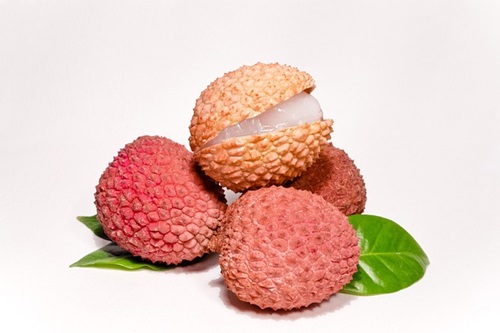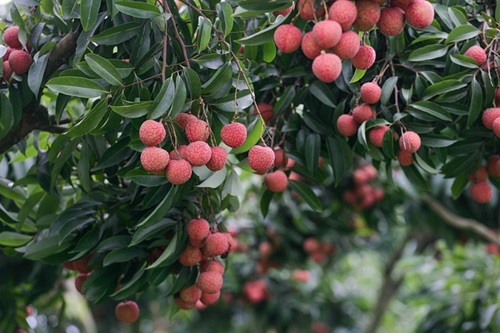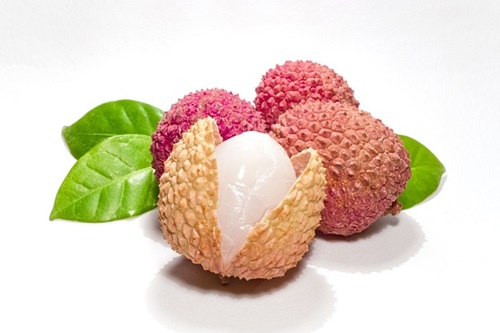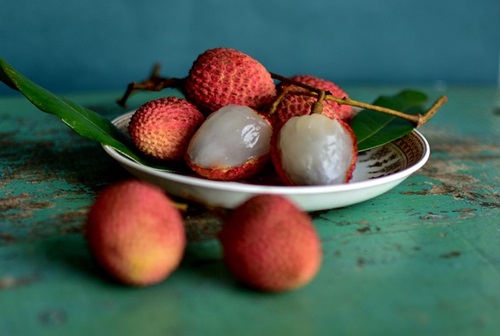As pet owners, we often wonder about the safety of sharing our favorite foods with our canine companions. Lychees, a tropical fruit known for their sweet and tangy flavor, might seem like a tempting treat to share with your dog. However, before offering your furry friend a bite, it’s important to understand the potential risks and benefits associated with this exotic fruit.

What Are Lychees?
Lychees are small, round fruits with a bumpy red skin and a translucent white flesh. They are native to China and are celebrated for their aromatic sweetness and juicy texture. Lychees are rich in vitamins C and B, antioxidants, and several essential nutrients, making them a nutritious choice for humans. But how do these benefits translate to our pets?

Are Lychees Safe for Dogs?
While lychees are not inherently toxic to dogs, they do pose several risks that warrant caution:
Digestive Upset: Lychees contain natural sugars and fibers that can be difficult for dogs to digest. Consuming too much can lead to gastrointestinal issues such as vomiting, diarrhea, or stomach discomfort. The fruit’s high sugar content may also contribute to obesity and dental problems if given in excess.
Choking Hazard: The lychee seed, or pit, is quite large and can be a choking hazard for dogs. Ingesting the seed can also cause an intestinal blockage, which may require surgical intervention to resolve.
Potential Toxicity: Although the flesh of the lychee itself is not toxic, the seeds and skin contain compounds that could be harmful if consumed in large quantities. Additionally, lychees contain a small amount of cyanogenic compounds that, while generally not a problem in moderate amounts, could potentially cause issues in sensitive or small dogs.

How to Safely Introduce Lychees to Your Dog
If you’re determined to share lychees with your dog, follow these guidelines to ensure their safety:
Remove the Seed: Always remove the lychee seed before offering any fruit to your dog. The seed should be discarded to avoid the risk of choking or intestinal blockage.
Serve in Moderation: Introduce lychee in very small amounts to see how your dog’s digestive system handles it. Moderation is key to avoiding gastrointestinal upset.
Observe for Reactions: After giving your dog a small amount of lychee, monitor them for any adverse reactions. Signs of digestive distress include vomiting, diarrhea, or changes in behavior.
Consult Your Veterinarian: Before introducing any new food into your dog’s diet, it’s always a good idea to consult with your veterinarian. They can provide personalized advice based on your dog’s health, size, and dietary needs.
Alternatives to Lychees
If you’re looking for a safe and healthy treat for your dog, consider these alternatives:
Blueberries: High in antioxidants and low in calories, blueberries are a great fruit option for dogs.
Apples: Apples provide vitamins and fiber, but always remove the seeds and core before feeding.
Carrots: Crunchy and low in calories, carrots are a healthy snack that many dogs enjoy.

Dogs and Lychees: Frequently Asked Questions
These FAQs aim to address common concerns and provide clear, practical advice on whether and how to safely offer lychees to dogs.
Q: Can dogs eat lychees at all?
A: While lychees are not toxic to dogs, they are not ideal due to potential digestive issues and choking hazards. It’s best to offer them cautiously and in moderation.
Q: Are lychees harmful to dogs?
A: Lychees themselves are not harmful in small amounts, but they can cause digestive upset and contain seeds that pose choking hazards.
Q: Can lychee seeds be dangerous for dogs?
A: Yes, lychee seeds can be dangerous. They pose a choking risk and can cause gastrointestinal blockages if ingested.
Q: What should I do if my dog eats a lychee seed?
A: If your dog eats a lychee seed, monitor them for symptoms like vomiting, difficulty swallowing, or abdominal pain. Contact your veterinarian if you notice any concerning symptoms.
Q: How can I safely offer lychees to my dog?
A: If you choose to offer lychees, remove the seed and give only a small amount of the flesh. Observe your dog for any adverse reactions.
Q: Can lychees cause digestive problems in dogs?
A: Yes, the high sugar content and fiber in lychees can lead to digestive upset, including vomiting or diarrhea.
Q: Are there any health benefits of lychees for dogs?
A: While lychees contain vitamins and antioxidants, there are safer fruit options for dogs that provide similar benefits without the risks.
Q: How much lychee can I give my dog?
A: If you decide to give lychee, limit it to a small piece and only occasionally. This helps prevent digestive issues and other health risks.
Q: Can lychees be part of my dog’s regular diet?
A: Lychees should not be a regular part of your dog’s diet due to the potential risks. Stick to fruits and vegetables that are known to be safe and healthy for dogs.
Q: What are some safe fruit alternatives for dogs?
A: Safe fruit alternatives for dogs include apples (without seeds), blueberries, strawberries, and carrots. These options are generally healthier and easier to digest.
Q: Can I give my dog canned lychees?
A: No, canned lychees often contain added sugars or preservatives, which can be harmful to dogs. Stick to fresh, plain lychees if you decide to offer them.
Q: What are the symptoms of lychee poisoning in dogs?
A: Symptoms of lychee poisoning can include vomiting, diarrhea, abdominal pain, and lethargy. Contact your vet if you suspect poisoning.
Q: Are there any long-term effects of feeding lychees to dogs?
A: Regular feeding of lychees can lead to long-term issues such as obesity, digestive problems, or dental issues due to the fruit’s sugar content.
Q: Can puppies eat lychees?
A: It’s best to avoid giving lychees to puppies, as their digestive systems are more sensitive and they are more susceptible to choking hazards.
Q: What should I do if my dog has a reaction after eating lychees?
A: If your dog has a negative reaction after eating lychees, such as vomiting or diarrhea, discontinue feeding them and consult your veterinarian for advice.
Q: Are there any fruits that are similar to lychees and safe for dogs?
A: Fruits like apples, blueberries, and bananas offer similar nutritional benefits without the risks associated with lychees.
Q: Can lychees cause allergic reactions in dogs?
A: Although rare, some dogs might be allergic to lychees. Watch for signs of an allergic reaction such as itching, swelling, or hives and consult your vet if needed.
Q: Can lychees interact with any medications my dog is taking?
A: There are no known interactions between lychees and medications, but it’s always wise to consult your veterinarian before introducing any new food to your dog’s diet.
Q: How should I prepare lychees for my dog?
A: If you choose to prepare lychees for your dog, peel the fruit, remove the seed, and cut it into small, manageable pieces.
Q: Can I use lychees as a reward during training?
A: It’s better to use more dog-friendly treats for training. Lychees should be an occasional treat rather than a regular training reward due to their potential risks.
While lychees are not deadly to dogs and can be given in small, carefully prepared amounts, they come with several risks that make them a less-than-ideal choice for a regular treat. Prioritizing fruits and vegetables that are known to be safe and beneficial for dogs will help ensure your pet’s health and happiness. Always remember, when in doubt, consult your veterinarian to keep your canine companion safe and well-nourished.


